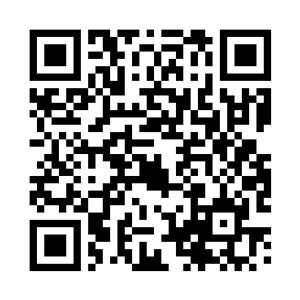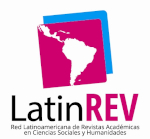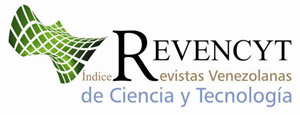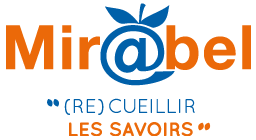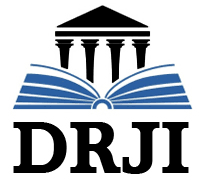Venezuelan cinema: an educational alternative to stimulate critical thinking
Keywords:
venezuelan cinema, pedagogical foundation, critical thinking, educational alternative, thought stimulationAbstract
This article deals with the educational reality in Venezuela, regarding the pedagogical alternatives that teachers have to stimulate critical thinking; the study had the objective of establishing the pedagogical foundation of cinema to stimulate critical thinking. The study used was based on the qualitative paradigm, the qualitative-interpretative method and the documentary design, the information gathering instrument was the observation guide, in which some questions were drafted adjusted to the subject treated, that is to say to the categories, subcategories and specifically to the units of analysis, so that the researcher could answer them with the help of the documents consulted. The results showed that the educational foundation of cinema is given in terms of the operational-technical, conceptual and instrumental components, which involve their personality, ways of thinking and attitude towards life. In addition, they are focused as an enriching strategy as they serve as an instrument to contextualize the academic contents combining the learning systems to achieve a functional learning in the students, it is concluded that the cinema fosters critical thinking in the students so that they can be guarantors of relating the information they receive with the environment that surrounds them.
Downloads
References
Acosta, S. (2022). La gamificación como herramienta pedagógica para el aprendizaje de la biología. Revista Latinoamericana Ogmios, 2(5). 249-266. https://doi.org/10.53595/rlo.v2.i5.036
Acosta Faneite, S. (2023). Los paradigmas de investigación en las Ciencias Sociales, capítulo 4 en Calidad de la educación superior: gestión estratégica, formación integral y soporte institucional, tomo 1 (pp. 60-79). Editorial Idicap Pacífico. https://doi.org/10.53595/eip.007.2023.ch.4
Acosta Faneite, S. & Blanco Rosado, L. (2022). La inteligencia emocional: un concepto humanizador para la educación en tiempos postpandemia, capitulo 1 en Desafíos y Perspectiva de la Educación, tomo 1 (pp. 17–25). Editorial Idicap Pacífico. https://doi.org/10.53595/eip.006.2022.ch.1
Acosta, S., y Boscán, A. (2014). Estrategias de enseñanza para promover el aprendizaje significativo de la biología en la Escuela de Educación Universidad del Zulia. Multiciencias, 14(1), 67-73. https://www.produccioncientificaluz.org/index.php/multiciencias/article/view/16996
Acosta, S. y Finol, M. (2015). Competencias de los docentes de Biología en las universidades públicas. Telos 17(2), 208-224. http://ojs.urbe.edu/index.php/telos/article/view/2248
Acosta, S., y Villalba., A. (2022). Educación para la paz como mecanismo de convivencia ciudadana. Revista Honoris Causa, 14(2), 7–27. https://revista.uny.edu.ve/ojs/index.php/honoris-causa/article/view/156
Álvarez, H. (2020). Procesos artísticos que fomentan el pensamiento crítico en los estudiantes de la básica secundaria de la institución educativa San José del Quemado del Municipio de Cereté, Córdoba. [Tesis de Maestría, Universidad UMECIT, Panamá]. Repositorio digital UMECIT. https://repositorio.umecit.edu.pa/handle/001/2784
Arias, F. (2016). El Proyecto de Investigación: Introducción a la Metodología Científica. 7ma. Venezuela: Edición. Editorial Episteme.
Blanco, L. & Acosta, S. (2023). La argumentación en los trabajos de investigación: un aporte científico al discurso académico. Delectus, 6(1), 29-38. https://doi.org/10.36996/delectus.v6i1.205
Bruner, J. (2018). Desarrollo cognitivo y educación. Ediciones Morata.
Caicedo, L. (2017). Neuroaprendizaje: Una propuesta educativa. Colombia: 2da. Edición. Ediciones de la U.
Carretero, M. (2021). Constructivismo y educación. Tilde editora. https://books.google.co.ve/books?id=FbxbEAAAQBAJ&printsec=frontcover&source=gbs_ge_summary_r&cad=0#v=onepage&q&f=false
Cepeda, S. (2017). El cine, una estrategia para desarrollar habilidades del pensamiento crítico en sociales. Educación y Ciencia, (20), 113-126. https://dialnet.unirioja.es/servlet/articulo?codigo=7982048
Dallera, M. y Tenaglia, E. (2021). Videoconferencia como recurso didáctico en el contexto educativo latinoamericano. Revista Latinoamericana en Comunicación, Educación e Historia, (3). https://revistas.unc.edu.ar/index.php/comedhi/article/view/38650
Díaz-Barriga, Á. & Luna, A. (2014). Metodología de la investigación educativa: Aproximaciones para comprender sus estrategias. Ediciones Díaz de Santos. https://www.editdiazdesantos.com/wwwdat/pdf/9788499696980.pdf
Finol, M. y Vera, J.L. (2020). Paradigmas, enfoques y métodos de investigación: análisis teórico. Revista Mundo Recursivo, 3(1), 1-24. https://www.atlantic.edu.ec/ojs/index.php/mundor/article/view/38
Fonseca, Y. & Castiblanco, O. (2020). Desarrollo del pensamiento crítico y reflexivo a partir de la enseñanza del sonido. Tecné, Episteme y Didaxis: TED, (47), 111-126 http://www.scielo.org.co/scielo.php?script=sci_arttext&pid=S0121-38142020000100111
Fuenmayor, A. y Acosta, S. (2015). Actitud de los estudiantes del quinto año de bachillerato hacia la investigación científica. Multiciencias, 15(4), 444-451. https://www.redalyc.org/pdf/904/90448465011.pdf
Galeano, M. (2004). Diseño de proyectos en la investigación cualitativa. Colombia: Fondo editorial Universidad Eafit. https://books.google.es/books?id=Xkb78OSRMI8C&printsec=copyright&hl=es#v=onepage&q&f=false
Giró Miranda, J. (2018). El cine en la formación inicial del docente. Giró Miranda, Joaquín. El cine en la formación inicial del docente. Revista de Sociología de la Educación-RASE, 11(3), 464-473. https://doi.org/10.7203/RASE.11.3.13073
Gómez-Gómez, M. y Botero-Bedoya, S. (2020). Apreciación del docente para contribuir al desarrollo del pensamiento crítico Eleuthera, 22(2), 15-30. https://doi.org/10.17151/eleu.2020.22.2.2
Gonzales, A. (2021). Recursos audiovisuales en el fortalecimiento del pensamiento crítico escolar. Journal of Latin American Science. https://lasjournal.com/index.php/abstract/article/view/75
González, M. (2015). Cine y literatura para el aprendizaje de las competencias básicas: Vínculos semióticos y educativos. Educatio Siglo XXI, 33(1) https://revistas.um.es/educatio/article/view/222551
Hernández-Sampieri. R, y Mendoza, C. (2018). Metodología de la investigación. Las rutas cuantitativa, cualitativa y mixta. México: McGraw-Hill Interamericana. http://www.biblioteca.cij.gob.mx/Archivos/Materiales_de_consulta/Drogas_de_Abuso/Articulos/SampieriLasRutas.pdf
Hurtado, J. (2015). El proyecto de investigación: comprensión holística de la metodología y la investigación. 8va. Edición. Caracas: Ediciones Quirón.
Kong, A. (2016). Ante la brecha digital: El cine comunitario como herramienta de educación. Reencuentro. Análisis de problemas universitarios, 28(72), 121-134. https://reencuentro.xoc.uam.mx/index.php/reencuentro/article/view/909
Monsalve Lorente, L. & Ruiz Romero, M. (2021). Desarrollo del pensamiento crítico a través del cine como recurso didáctico. ADResearch ESIC International Journal of Communication Research, 26(26), 150-166. https://doi.org/10.7263/adresic-026-08
Macazana, D., Sito, L., y Romero, A. (2021). Psicología educativa. NSIA Publishigh House Editons. http://fs.unm.edu/PsicologiaEducativa.pdf
Ñaupas, H., Valdivia, M., Palacios, J. y Romero, H. (2018). Metodología de la Investigación: Cuantitativas-Cualitativas y Redacción de Tesis. 5ta. Edición. Colombia: Ediciones de la U. http://www.biblioteca.cij.gob.mx/Archivos/Materiales_de_consulta/Drogas_de_Abuso/Articulos/MetodologiaInvestigacionNaupas.pdf
Olmedo, N. y Farrerons, O. (2017). Modelos constructivistas de aprendizaje en programas de formación. Omnia Science.
Oviedo, P. y Páez, R. (2020). Pensamiento crítico en la educación: propuestas investigativas y didácticas. Universidad de la Salle, Facultad de Ciencias de la Educación.
Palella, S. y Martins, F. (2017). Metodología de la investigación cuantitativa. 4ª edición. Fondo Editorial de la Universidad Pedagógica Experimental Libertador (FEDUPEL).
Piaget, J. (2019). La formación del símbolo en el niño: imitación, juego y sueño. Imagen y representación. Fondo de cultura económica.
Salamanca, C. (2018). Proyecto de aprendizaje en educación infantil: El cine. [Tesis Grado en Educación Infantil. Universidad de Valladolid]. Repositorio documental universidad de Valladolid. https://uvadoc.uva.es/handle/10324/30733
Suárez, I., Varguillas, C., y Ronceros, C. (2022). Técnicas e instrumentos de investigación: Diseño y validación desde la perspectiva cuantitativa. Fondo Editorial de la Universidad Pedagógica Experimental Libertador (FEDUPEL). https://doi.org/10.46498/upelipb.lib.0013
Vigotsky, L. S. (1998). Pensamiento y lenguaje. Editorial Pueblo y Educación. https://books.google.co.ve/books/about/Pensamiento_y_lenguaje.html?id=CGM0EAAAQBAJ&redir_esc=y
Published
How to Cite
Issue
Section
License

This work is licensed under a Creative Commons Attribution-NonCommercial-ShareAlike 4.0 International License.





